Best Emotional Support Cat Breeds To Choose From!

Finding the right cat as your emotional support animal (ESA) can be a life-changing decision, offering companionship, comfort, and stability. In the United States, millions rely on emotional support animals to manage mental health challenges such as anxiety, depression, and PTSD. But with so many cat breeds to choose from, how do you know which one is the best fit for you? Understanding the best cat breeds for emotional support can help you make an informed choice.
Whether you’re looking for a breed known for its calm demeanor, affectionate nature, or playful energy, this guide will walk you through the 24 best emotional support cat breeds. From the gentle Ragdoll to the lively Bengal, there’s a perfect companion for everyone. We’ll also cover essential factors like temperament, grooming needs, and maintenance costs, so you can make an informed decision about which feline companion will provide the best emotional support.

Why Choose a Cat as Your ESA?
Cats are often the go-to choice because they are good emotional support animals that combine affectionate behavior with low-maintenance care. Other animals such as dogs, which require frequent walks and extensive training, cats are independent and adaptable. They’re great for people with busy schedules or those living in smaller spaces. Cats are also highly intuitive and sensitive to their owner’s emotions, often offering comfort by simply being present and purring beside you.
Here’s an in-depth look at some of the best emotional support cat breeds. Each of these cat breeds offers unique characteristics that can help improve emotional well-being.
1. Ragdoll – Gentle Cat

2. Siamese cat

3. Maine Coon – Best Therapy Cats
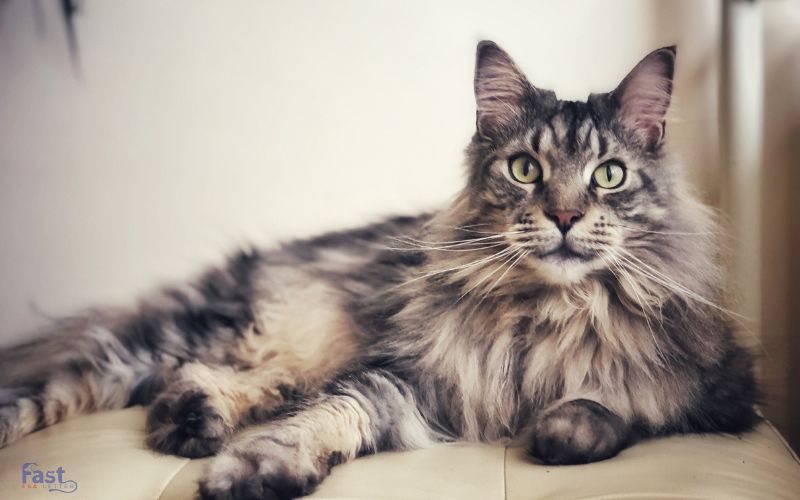
4. Persian Cats
Best For: Those seeking a serene and quiet companion.
Maintenance Cost: Moderate (regular vet visits, grooming products).
Grooming Requirements: Long Haired Breed. Require Daily brushing to avoid matting.
Additional Info: Persian cats are known for their sweet and calm demeanor.
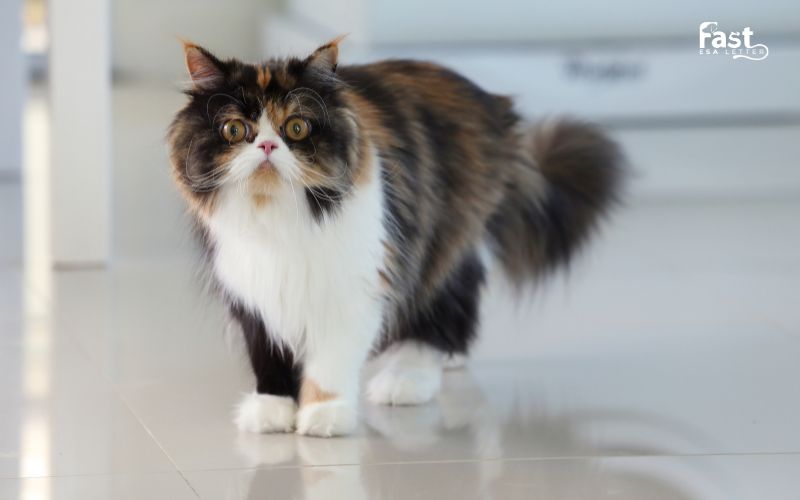
5. British Shorthair

6. Bengal

7. Burmese
Best For: Those looking for a loving, playful companion.
Maintenance Cost: Moderate (regular vet visits, good quality food).
Grooming Requirements: Minimal (short coat, easy to maintain).
Additional Info: They thrive on companionship and dislike being left alone for long periods.
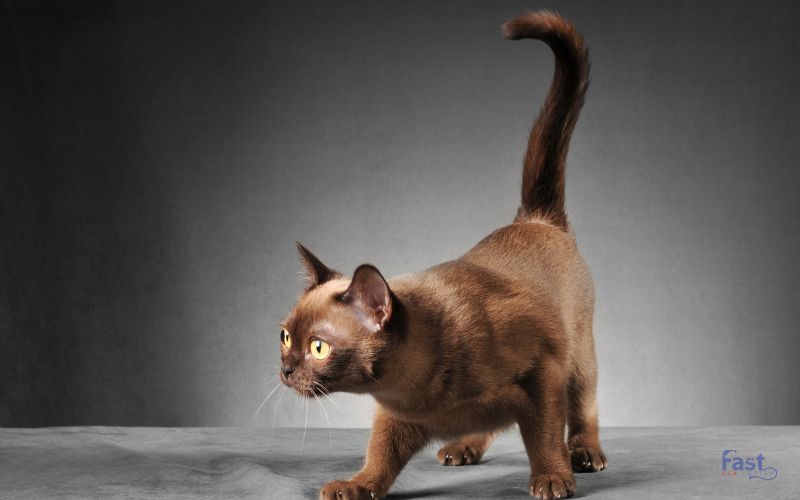
8. Abyssinian

9. Scottish Fold
Best For: Those seeking a calm and loving cat with a unique look.
Maintenance Cost: Moderate (regular vet check-ups for ear health).
Grooming Requirements: Weekly brushing to manage shedding.
Additional Info: Their distinctive folded ears make them instantly recognizable and adorable.

10. Sphynx

11. Russian Blue

12. Birman
Best For: Families or individuals looking for a social and affectionate cat.
Maintenance Cost: Moderate (regular vet visits, good quality food).
Grooming Requirements: Weekly brushing.
Additional Info: They are known for their gentle nature and striking blue eyes.
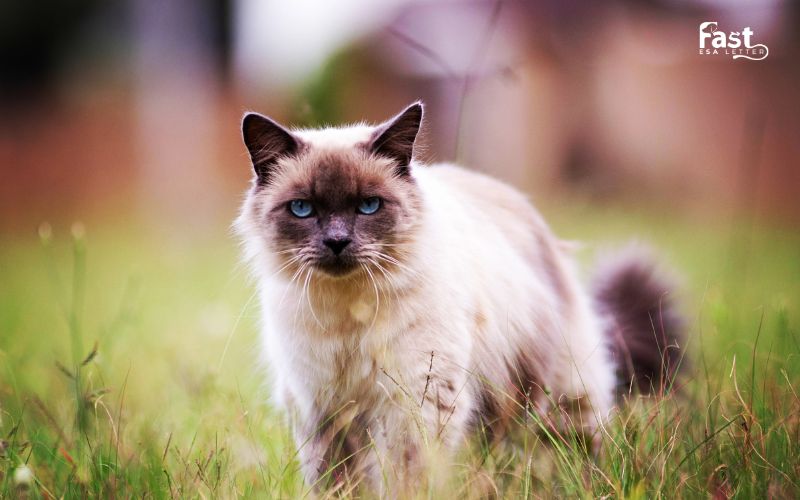
13. American Shorthair
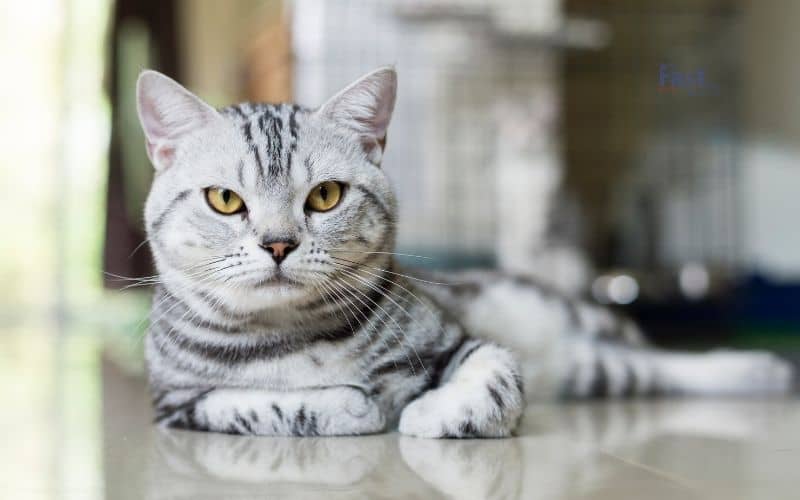
14. Tonkinese
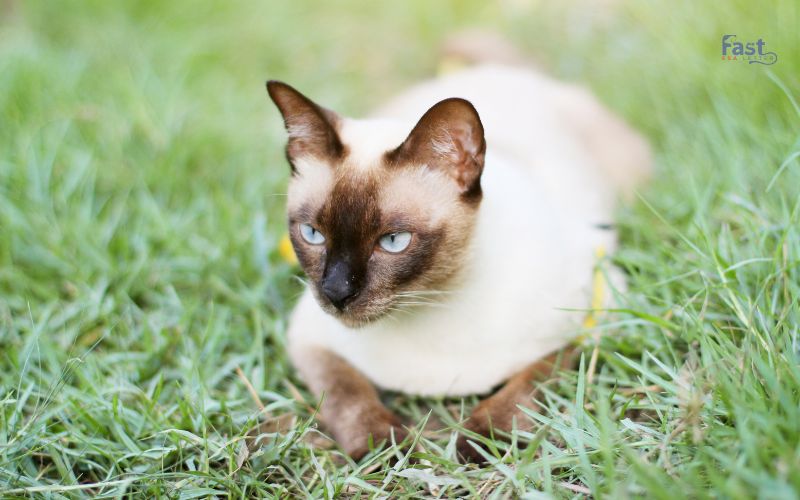
15. Oriental Shorthair
Best For: Those who want a lively and social companion.
Maintenance Cost: Moderate (standard care).
Grooming Requirements: Minimal (short coat).
Additional Info: Known for their variety of colors and patterns; they are very affectionate.
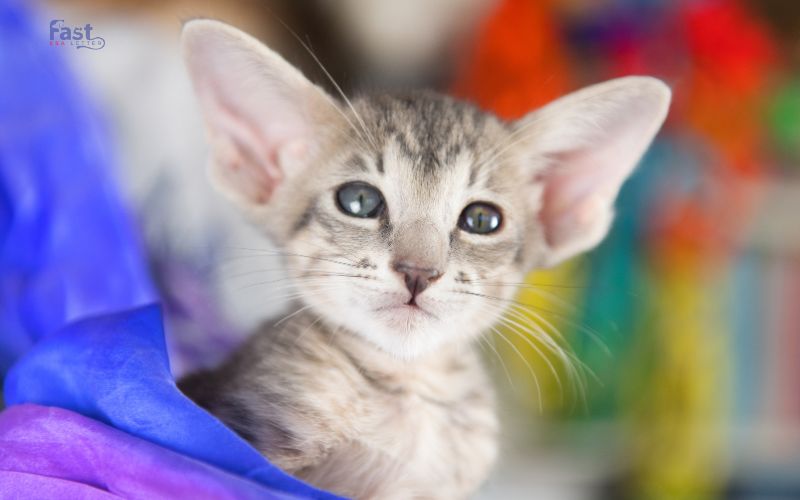
16. Devon Rex
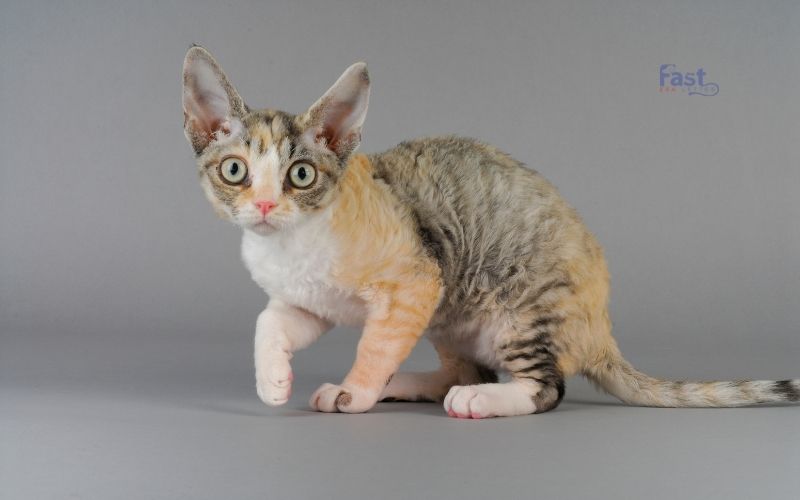
17. Himalayan

18. American Bobtail Cat
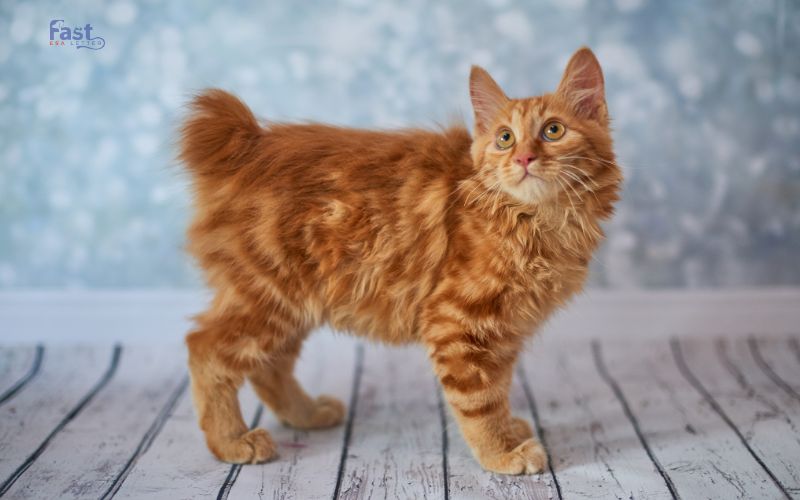
19. Turkish Angora

20. Exotic Shorthair Cat
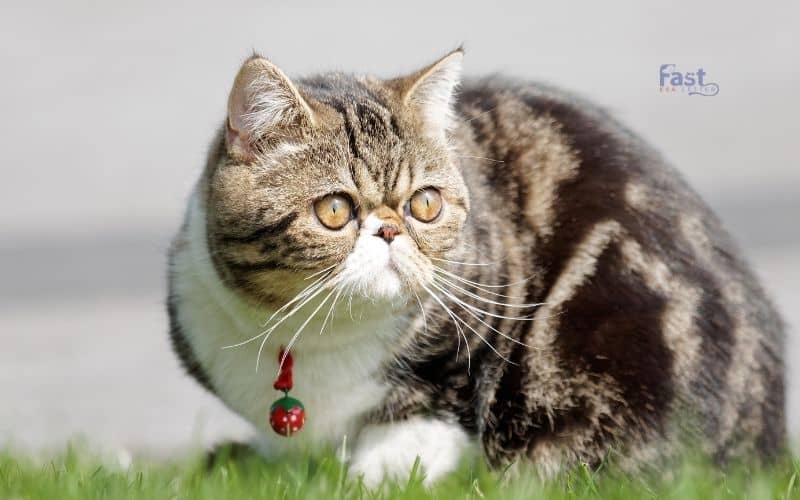
21. Chartreux Cat

22. LaPerm Cat

23. Bombay Cat

24. Manx Cat
Best For: Those looking for a playful and intelligent companion.
Maintenance Cost: Moderate (healthy breed, but the unique spinal structure can lead to health issues).
Grooming Requirements: Low (short or medium coat requires occasional brushing).
Additional Info: Manx cats are playful and have a dog-like loyalty, often following their owners around.

How To Choose the Right ESA Cat for Me?
Where Can I Get an Emotional Support Cat?
How to Make a Cat an ESA Cat?
To designate your new furry friend as an Emotional Support Animal, you’ll need a LMHP to provide an ESA letter. This letter confirms that you have a mental or emotional disability and that an Emotional Support Animal is necessary for your well-being. The process involves a consultation where the professional assesses your needs and determines if an ESA is beneficial. There’s no formal training required for your cat, but it should exhibit good behavior and not cause disturbances. The ESA letter will grant you and your cat certain legal protections, such as the ability to live in no-pet housing with minimal restrictions.
What Are the Benefits of Having an ESA Cat?
- Emotional Stability: The soothing presence of a cat can help reduce anxiety, lower blood pressure, and improve overall mood. Their purring has even been found to have therapeutic benefits, promoting relaxation and calm.
- Companionship: Whether you live alone or with others, a cat offers unwavering companionship. They can make you feel less isolated and more connected.
- Low Maintenance: Unlike dogs, cats don’t need to be walked or bathed regularly. Their self-sufficient nature makes them ideal for people with limited time or physical limitations.
Conclusion
Frequently Asked Questions
Who Can Have an Emotional Support Cat?
Anyone with a mental health condition like anxiety, depression, PTSD, or phobias may qualify for an ESA Cat, as long as a licensed mental health professional confirms its benefit. Unlike service animals, ESAs require no specialized training and offer comfort through their presence.
Will My Landlord Allow Me to Have an Emotional Support Cat?
How Do I Know If I Need An Emotional Support Cat?
Can Emotional Support Cats Help With Loneliness?
Post Author
Prince Sharma
Related Articles
Can a Turtle Be an Emotional Support Animal?
Can a Turtle Be an Emotional Support Animal? Yes—Here’s How!Yes, a turtle can be an emotional support animal (ESA) if it provides comfort and emotional stability to its owner. While turtles may not offer the same level of interaction as dogs or cats,...
Is a Fox Terrier the Right Emotional Support Dog for You?
Is a Fox Terrier the Right Emotional Support Dog for You?Fox Terriers can be your perfect emotional support animal, offering unmatched comfort and companionship if you're dealing with emotional or mental health challenges. To officially make your Fox...
Can Your Tenant Own an Alligator as an Emotional Support Animal?
Can Your Tenant Own an Alligator as an Emotional Support Animal?Yes, an alligator can become an emotional support animal (ESA) if a licensed professional provides an ESA letter. However, due to safety concerns, many landlords and states may restrict...
Live Free with Your ESA!
An ESA Letter Unlocks Freedom!






